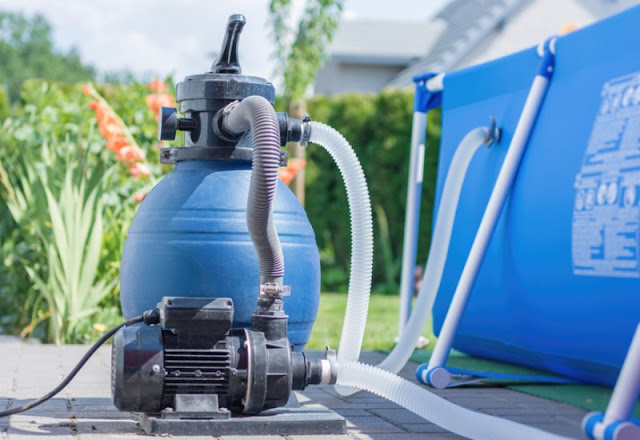How Much Does a Pool Pump Cost?
A well-functioning pool pump is essential for maintaining a
clean and healthy swimming pool. However, understanding the cost of a pool pump
is crucial for budgeting and making informed decisions. In this article, we
will explore the various factors that influence pool pump costs, installation
considerations, and long-term cost implications.
Factors Influencing Pool Pump Costs
The type of pool pump you choose will have a significant
impact on the cost. Here are the main types:
Single-speed pool pumps are the most basic and often the
least expensive option. They operate at a fixed speed, typically at the highest
setting. While their upfront cost is lower, they tend to be less
energy-efficient and may result in higher long-term operational costs.
Dual-speed pool pumps offer more flexibility compared to
single-speed pumps. They can operate at two different speeds: high and low. The
high-speed setting is used for regular pool maintenance, while the low-speed
setting is ideal for lower-demand periods. Dual-speed pumps provide energy
savings by running at a lower speed when higher water circulation is
unnecessary.
Variable-speed pool pumps are the most energy-efficient
option available. These pumps allow you to adjust the pump's speed to match
your pool's specific requirements. Variable-speed pumps offer a wide range of
speeds, enabling you to optimize water circulation, filtration, and energy
consumption. While variable-speed pumps have a higher initial cost, they can
provide significant long-term savings on energy bills.
The horsepower rating of a pool pump also affects its cost.
Higher HP ratings typically indicate more powerful pumps, which can handle
larger pools or more demanding filtration needs. However, higher HP pumps tend
to be more expensive. It is important to select a pump with the appropriate
horsepower for your pool size and specific requirements to avoid unnecessary costs.
The brand and manufacturer of the pool pump can influence
its cost. Established brands with a reputation for quality and reliability
often come at a higher price point. However, they may offer better durability,
warranty coverage, and customer support, which can be valuable in the long run.
Energy efficiency ratings and certifications, such as ENERGY
STAR®, can impact the cost of a pool pump. Energy-efficient pumps generally come
at a higher price but can lead to significant savings on energy bills over
time. These pumps are designed to minimize energy consumption while maintaining
effective water circulation and filtration.
Pool pumps with advanced features and technology
advancements may have a higher cost. These features can include soundproofing
to reduce noise levels, smart controls for remote operation and scheduling, and
innovative motor technologies that enhance efficiency and durability. Consider
your specific needs and budget when deciding which additional features are
worth the investment.
Installation Costs and Considerations
While some pool owners may opt for DIY installation, it is
often recommended to hire a professional for proper installation. Professional
installation ensures the pump is correctly connected, reduces the risk of
damage, and guarantees compliance with local regulations. The cost of professional
installation will vary based on factors such as location, complexity of the
installation, and additional electrical or plumbing requirements.
Pool pumps require electrical and plumbing connections.
Depending on the type and capacity of the pump, you may need to make
adjustments to your existing electrical and plumbing infrastructure. This can
incur additional costs, so it's essential to factor in these requirements when
considering the overall cost to install a pool pump.
To get an accurate estimate of installation costs, it is
recommended to obtain quotes from multiple pool pump installation
professionals. This will allow you to compare prices, services, and expertise
to make an informed decision.
Long-Term Cost Considerations and Savings
The energy consumption of a pool pump directly affects its
operational costs. Single-speed pumps tend to consume more energy compared to
dual-speed and variable-speed pumps. Higher energy efficiency can lead to
substantial long-term savings on energy bills, offsetting the initial higher
cost of energy-efficient pumps.
Energy-efficient pool pumps, particularly variable-speed pumps,
can provide significant energy savings. By operating the pump at lower speeds
during periods of lower demand, such as filtration, you can reduce energy
consumption. Over time, these energy savings can make up for the higher upfront
cost of the pump.
Considering the long-term cost implications and potential
savings, it is important to calculate the return on investment (ROI) and
payback period. Compare the cost difference between different pump options,
factoring in energy savings and maintenance costs, to determine when the more
expensive, energy-efficient pumps will start to pay for themselves.
The Essential Guide to Pool Pump Selection
Conclusion
Read more: Tips for Extending the Lifespan of Your Pool Pump




Comments
Post a Comment